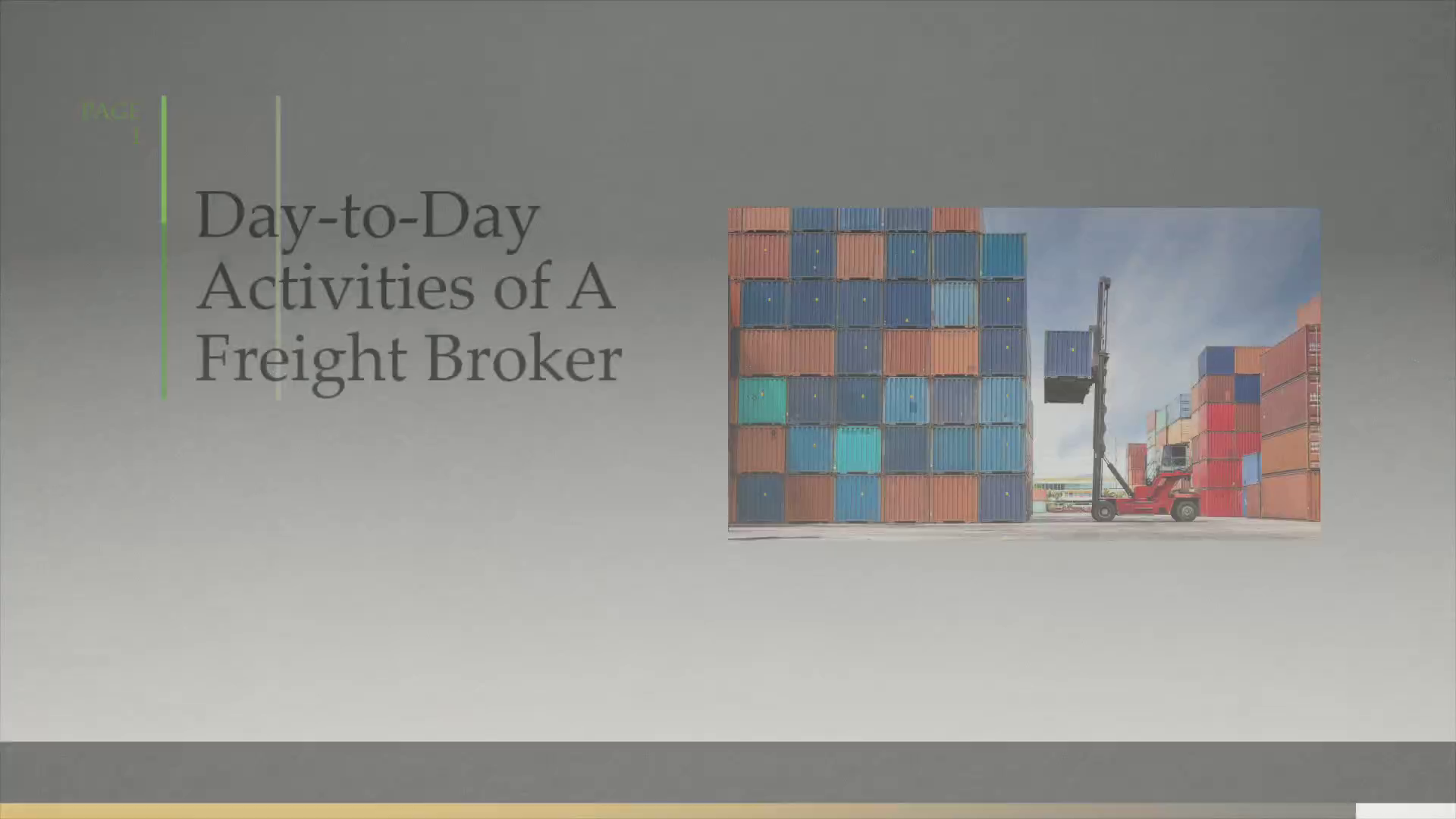
Day-to-Day Activities of A Freight Broker
Scene 1 (0s)
[Virtual Presenter] Day to Day Activities of A Freight Broker As a freight broker, your day-to-day activities will involve a range of tasks that are crucial for the smooth operation of your business. These activities require a combination of organizational skills, industry knowledge, and effective communication. In this section, we will explore the key responsibilities and tasks that freight brokers handle on a daily basis. 1. Managing Shipments One of the primary responsibilities of a freight broker is to manage shipments. This involves coordinating the movement of goods from the shipper to the carrier and ensuring that all necessary documentation is completed accurately and on time. You will be responsible for tracking shipments, monitoring their progress, and addressing any issues that may arise during transit. Additionally, you will need to negotiate rates with carriers, considering factors such as distance, weight, and type of cargo. It is essential to maintain good relationships with carriers to secure the best rates and ensure reliable transportation for your clients. 2. Finding and Evaluating Carriers Another crucial aspect of a freight broker's daily activities is finding and evaluating carriers. You will need to identify carriers that are reliable, cost-effective, and able to meet your clients' specific transportation needs. This involves conducting thorough research, checking carrier safety records, and verifying insurance coverage. Once you have identified potential carriers, you will need to negotiate contracts and establish mutually beneficial partnerships. Regularly evaluating carrier performance is also essential to ensure consistently high-quality service for your clients. 3. Building and Maintaining Relationships Building strong relationships is vital in the freight brokerage industry. As a freight broker, you will interact with various stakeholders, including shippers, carriers, and other industry professionals. Developing and maintaining positive relationships with these individuals is crucial for your success. You will need to communicate effectively with shippers to understand their specific shipping requirements and provide them with suitable transportation solutions.Similarly, fostering good relationships with carriers will help you secure capacity and negotiate favorable rates. 4. Managing Documentation and Compliance Freight brokers are responsible for managing a significant amount of documentation and ensuring compliance with industry regulations. This includes preparing and reviewing contracts, bills of lading, and other necessary paperwork. Compliance with regulations such as the Federal Motor Carrier Safety Administration (FMCSA) guidelines is essential. Staying up-to-date with industry regulations and ensuring that all required permits and licenses are in order is crucial for maintaining a legally compliant operation. 5. Providing Customer Service As a freight broker, providing excellent customer service is essential. You will act as the primary point of contact for your clients, addressing their inquiries, resolving issues, and ensuring their overall satisfaction. Effective communication skills are crucial for understanding client needs and providing them with accurate and timely information. Building trust and maintaining strong relationships with your clients will contribute to the success and growth of your freight brokerage business. Overall, the day-to-day activities of a freight broker involve managing shipments, finding and evaluating carriers, building relationships, managing documentation and compliance, and providing exceptional customer service. Developing proficiency in these areas will enable you to effectively navigate the complex world of freight brokerage and establish a successful career in the industry..